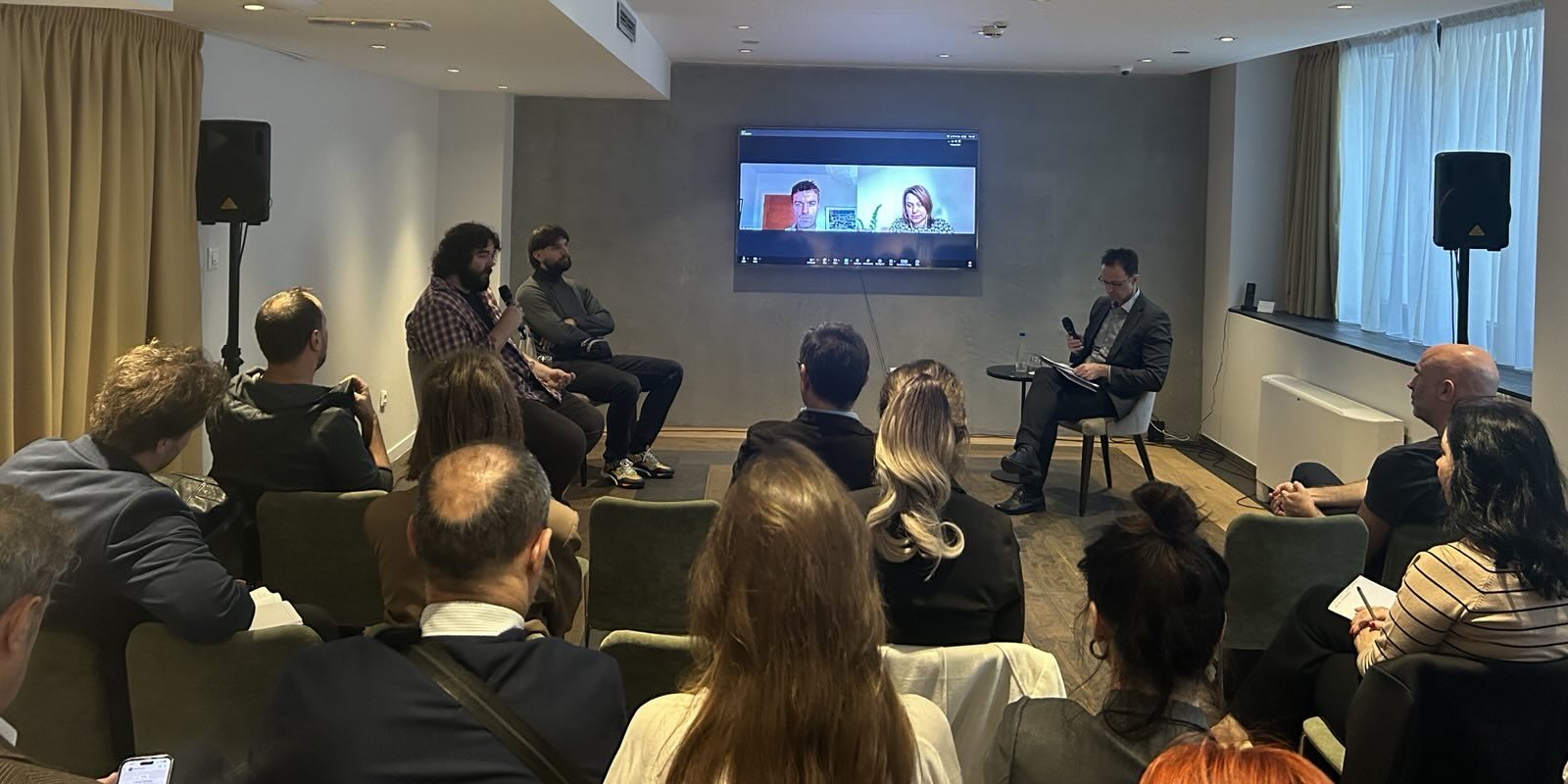SHARE
News:
Lack of a public debate on the migrant crisis can strengthen right-wing extremism
Extreme right-wingers consider that the number of reported incidents involving migrants is deliberately diminished, see the positive representation of migrants as a form of repression and their activism is manifested mainly on the Internet, are the preliminary conclusions of the research presented by the researcher fellow Marina Lazetic to the ...
Extreme right-wingers consider that the number of reported incidents involving migrants is deliberately diminished, see the positive representation of migrants as a form of repression and their activism is manifested mainly on the Internet, are the preliminary conclusions of the research presented by the researcher fellow Marina Lazetic to the Belgrade Centre for Security Policy (BCSP) team on July 28, 2017.
As a research fellow, she was engaged with the BCSP from May to July 2017, and during her collaboration with BCSP, she studied the connection of the migrant crisis with the perceived strengthening of extremism in Serbia. During her research, she interviewed key actors, such as representatives of government bodies in charge of refugee assistance, NGOs dealing with this topic, as well as the representatives of right-wing organizations and parties.
Marina Lazetic graduated in sociology and human rights at Bard College in the United States, and she completed her master studies at the Fletcher School of Law and Diplomacy at Tafts University, the oldest institution in the United States devoted exclusively to the study of international relations. Prior to the BCSP, Lazetic worked as a research associate in organizations from Boston and Washington, and in addition she has a professional and volunteer experience in the civil sector. She is particularly interested in studying violent extremism and radicalism, conflict prevention and civilian protection .
Belgrade Centre for Security Policy (BCSP) has an ongoing open call for fellowship programmes for foreign students. Standard duration of the BCSP fellowship is up to 3 months, with four yearly tenures. More than 200 students from Serbia and 35 from all over the world participated in BCSP internship and fellowship programmes in the last eleven years.
Tags: ..., crisis, debate, extremism, fellowship, lazetić, migrant, organizations, public, research, right, security, serbia, strengthen, the bcspright
RELATED

Date: 04.11.2025.
Author: Belgrade Centre for Security Policy
At the panel discussion “Freedoms Under Pressure: Civil Society and Digital Oversight in Serbia and Abroad”, organised by the Belgrade Centre for Security Policy (BCSP) on 31 October in Belgrade, speakers warned that digital surveillance and spyware use are rapidly becoming tools of political control in Serbia and across Europe, posing severe risks to human rights and democracy.

Date: 11.05.2023.
Author: Belgrade Centre for Security Policy
The citizens of Serbia are still shocked and appalled by the last week’s two mass shootings that took place in less than 48 hours, resulting in 17 dead and another 20 wounded.

Date: 26.04.2023.
Author: Belgrade Centre for Security Policy
The Belgrade Centre for Security Policy (BCSP) organized a panel discussion titled “Serbia and Ukraine: Challenges of War” that gathered experts from Ukraine and Serbia, aiming to discuss the relations between Serbia and Ukraine, pro-Russian narratives and position of Ukraine and the Western Balkans in the European security architecture after the end of the war. Helena Ivanov, an associate research fellow from the Henry Jackson Society, moderated the panel.


